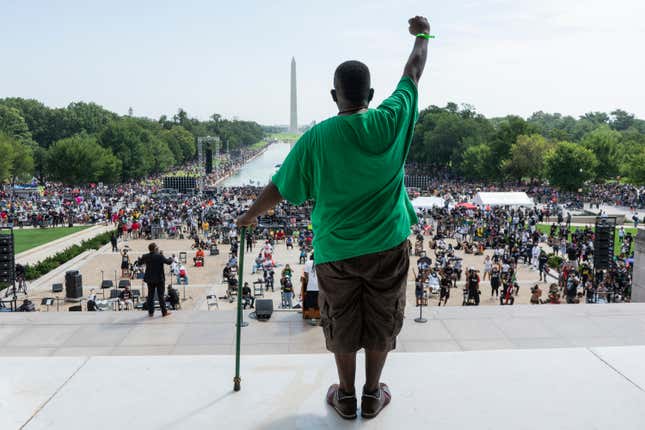
When Taun Hall, a Black California mother, dialed 911 in the midst of her son Miles’ mental health crisis, she’d hoped first responders would be able to help. Miles had been having an episode while gardening with his grandmother, and had shattered the family window with a neighbor’s gardening tool.
This wasn’t his first time dealing with mental health challenges. Hall told ABC News that as a teenager, Miles had struggled with his mental health. And that as an adult, he was diagnosed with schizoaffective disorder.
Even as his symptoms worsened, because he was an adult there was nothing his mother or his family members could do to force him to get treatment.
But, Hall had been proactive in other ways. She kept in close contact with local law enforcement to make sure that if anyone ever called 911 on her son, police would know how to care for him. “I was like, ‘OK, if they know him, they’re gonna respond with care and compassion,” Hall told ABC.
But, according to ABC News, within minutes of dialing 911, police arrived and fatally shot 23-year-old Miles Hall.
Hall wasn’t the only person to call 911 on Miles. Other neighbors had also called in an incident report, according to ABC News.
And it was a neighbor, who called Hall to let her know that Miles had been killed. “The worst fricking moment of, you know, our lives was right then, right there,” Hall told ABC News.
The officers were cleared of all wrongdoing following an internal investigation, according to ABC News.
Tragedies like the one that ended in Miles Hall’s death are far too common in the United States. According to the Center for American Progress, 50 percent of people killed by law enforcement are disabled, and more than half of disabled African Americans have been arrested by the time they turn 28.
In May of 2018, police shot and killed Marcus David Peter, a 24-year-old Black highschool teacher, who was suffering from a sudden-onset mental health crisis. According to Peter’s family, he had no criminal history or history of mental illness.
“People ask me all the time, ‘What do you think caused him to have a mental break?’ And I say, ‘We’ll never know, because he was killed,’” Peters’ sister, Princess Blanding, told TIME. “It was easier to take out the threat, which was his brown skin, than to try to help him.”
Like in Miles’ case, the police were cleared of all wrongdoing. Even more recently, Adrienne Bryant told the Arizona Mirror, that she called 911 for help during her son’s mental health crisis, only for them to show-up armed to the teeth with rifles and a riot shield.
Knowing what to do in the midst of a loved one’s mental health crisis can feel like a catch 22. Do you deal with the crisis yourself, or do you risk that law enforcement could severely injure the person you’re trying to save?
Back in California, Mile’s mother, Taun Hall, got to work on a solution. She teamed up with Assemblywoman Rebecca Bauer-Kahan to come up with a third option for families.
What they landed-on was a new task force called Mobile Assistance Community Responders of Oakland, or MACRO for short. Now, Oakland residents have the option when they call 911 to reach the special MACRO dispatch center. According to ABC News, each MACRO team has an EMT, a crisis intervention specialist, and a van packed with supplies.
Similar programs have been rolled out in other parts of the country, including New York city, to varying levels of success. And in September, California Governor Gavin Newsome signed into law an expansion of the program.
Although Hall can never get her son back, the idea that she could help another family avoid the same pain pushes her to keep fighting.
“I can’t ever take back a phone call,” Hall told ABC. “I can’t ever take back the officer shooting him…but I can take my pain to purpose and make sure this doesn’t happen to somebody else.”

